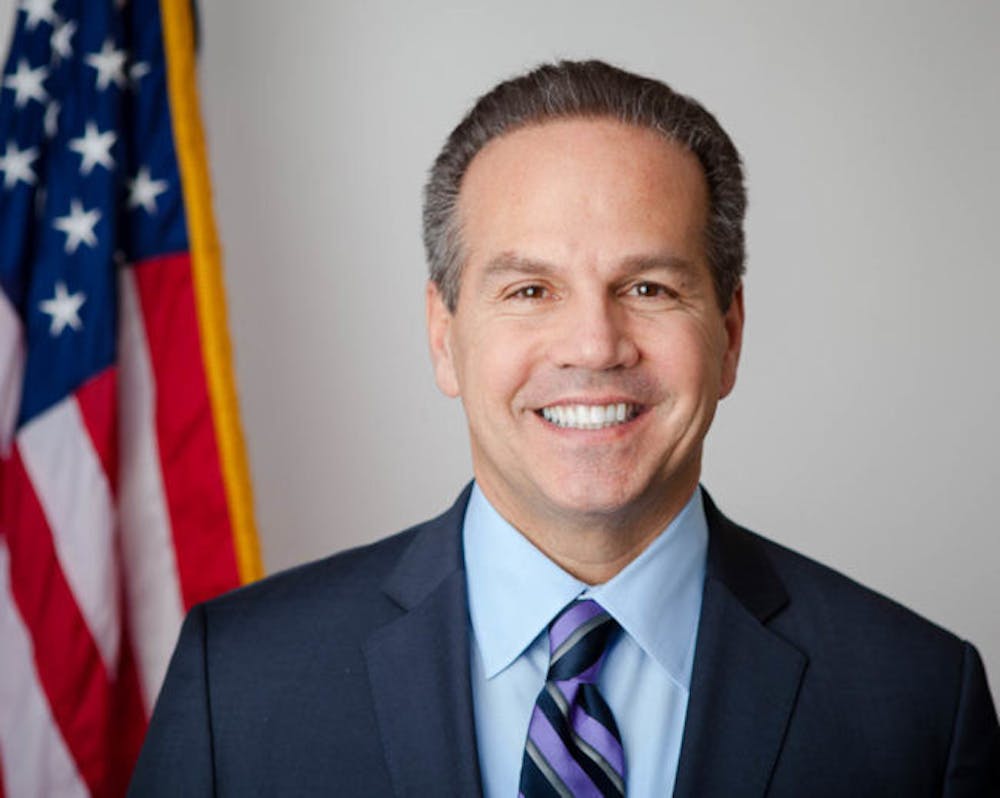On April 3, U.S. Congressman David Cicilline ’83, D-R.I. proposed the Journalism Competition and Preservation Act for the second year in a row, which would allow online publishers and small newspapers to collectively negotiate with companies like Facebook and Google over the terms that regulate how these dominant online platforms distribute the publishers’ content.
“Right now, these two large platforms basically dictate the terms,” Cicilline told The Herald. To grant ‘News Content Creators’ more power in negotiations with ‘Online Content Distributors,’ the bill presents “a market-based solution. It’s not breaking up the platforms.” Instead, the act exempts publishers from antitrust laws that would otherwise prevent them from banding together during negotiations.
Cicilline introduced the bill last year in a GOP-majority House and found no Republican support, preventing the bill’s progress, The Hill reported. With the highest ranking Judiciary Republican Rep. Doug Collins, R-GA, now onboard, the bill stands a greater chance of moving forward.
President and CEO of News Media Alliance and the American Press Institute David Chavern emphasized the significance of the act. “The current antitrust laws protect Google and Facebook from news publishers. … We’re asking for the government to leave us alone” by limiting the liability of news content creators under the antitrust laws. Currently, newspapers have little to no collective negotiating power with large online platforms, which can prevent publishers from profiting when their own content is distributed. “More money has to flow back to publishers,” Chavern said
Four months before introducing this bill, Cicilline became chairman of the House Judiciary Committee’s Subcommittee on Antitrust, Commercial and Administrative Law. He told The Herald that the subcommittee would focus on big technology companies and healthcare sector issues, like hospital consolidations and prescription drug prices.
“It is well past time that we update and modernize our antitrust standards,” Cicilline told Bloomberg Opinion in January.
On March 19, Cicilline wrote a letter to the Federal Trade Commission urging the agency to investigate Facebook for using its position as a monopoly to unlawfully undermine competition. The FTC has not issued a public response. But on March 26, the Commission initiated an investigation into the practices and policies of internet service providers under a law that allows them to “enforce against unfair and deceptive practices,” according to an FTC press release.
Outside of large technology companies and internet privacy, the subcommittee’s efforts have also targeted the healthcare industry. In February 2019, the subcommittee introduced the bipartisan CREATES Act “to promote competition in the market for drugs and biological products by facilitating the timely entry of lower-cost generic and biosimilar versions of those drugs and biological products,” according to the legislation. According to the subcommittee’s ranking member, Rep. F. James Sensenbrenner, R-WI, Cicilline “has been a key ally on efforts to combat the rising costs of prescription drugs,” Sensenbrenner wrote in an email to The Herald. The CREATES Act “would expand access to markets for generics, making prescription drugs more affordable and saving taxpayers billions of dollars,” Sensenbrenner wrote.
“We need to promote policies that promote competition and choice. It should be bipartisan because Republicans have always been good on this issue,” Cicilline said.
Cicilline believes that further change is on its way. “We just haven’t had good enforcement of competition policy at the federal regulatory level,” Cicilline said, adding, “We didn’t have a Congress that made it a priority. We’re going to make it one now.”
Facebook did not respond to request for comment.
A previous version of this article misstated that Chris Collins, R-NY, was the highest ranking Republican member of the House Judiciary Subcommittee. In fact, Doug Collins, R-GA, is the highest ranking Republican member. The Herald regrets the error.





